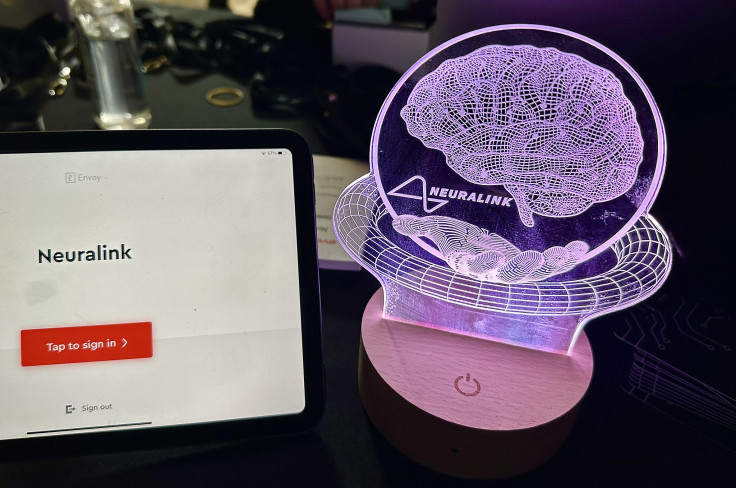
Experts believe that Elon Musk-led neurotechnology company Neuralink lacks transparency, while openly disregarding scientific and ethical norms.
Neuralink raises concerns about patient safety and could end up setting back the entire field of neurotechnology, experts told Forbes, after the billionaire announced early success in the company's first human trial.
The first human received an implant from @Neuralink yesterday and is recovering well.
— Elon Musk (@elonmusk) January 29, 2024
Initial results show promising neuron spike detection.
"Progress is good, and the patient seems to have made a full recovery, with neural effects that we are aware of. The patient is able to move a mouse around the screen by just thinking," Musk said in a Spaces event last week.
Neuralink explained! This is mind-blowing! 🤯 pic.twitter.com/Ewq7h32kGT
— Ahmad (@el_ahmadyy) February 20, 2024
Professor of ethics of AI and neuroscience at the Technical University of Munich, Marcello Ienca, said he isn't perplexed by the technology itself, but by the way scientific news is communicated.
Ienca believes the information about Neuralink and its work is being communicated "through casual social media updates" instead of traditional outlets for science like peer-reviewed publications, public repositories, or even simple pre-prints.
According to Ienca, this unconventional way of broadcasting scientific news seems to bypass the established protocols that bolster scientific integrity. Moreover, the professor noted that casually communicating scientific news prevents experts from evaluating or understanding "the full scope and impact" of any claimed advances.
Balancing innovation with safety
Expressing a similar sentiment, L. Syd M Johnson, an ethicist at SUNY Upstate Medical University's Center for Bioethics and Humanities, said: "A tweet is not exactly a peer-reviewed scientific report."
Johnson also pointed out that Musk's brief update did not divulge key details regarding the patient's recovery, nor clarified what degree of control the patient has over the mouse. It is also unclear whether "mouse" actually meant the onscreen cursor.
neuralink patient can now control a computer mouse with their thoughts. pic.twitter.com/x1rI923cyi
— zamohappy (@zamohappy) February 20, 2024
Neuralink is "only sharing the bits that they want us to know about," Sameer Sheth, a neurosurgeon specialising in implanted neurotechnology at Baylor College of Medicine in Houston, Texas told Nature. "There's a lot of concern in the community about that," he added.
Laura Cabrera, a neuroethicist at Pennsylvania State University's Rock Ethics Institute noted that clinical trials are usually registered in the public database ClinicalTrials.gov to ensure transparency, and accountability and to benefit science.
While choosing not to register a clinical trial is perfectly legal, Ienca argues that Neuralink's approach falls short of fundamental ethical principles in biomedical research. Moreover, Musk's brain implant company has confirmed whether it has set up an internal ethics board or plans to establish its own code of ethics.
Cabrera says it is imperative to create "more rigorous ways" to hold companies operating in the space accountable and ensure they follow the same reporting standards when it comes to communicating federally funded trials.
Weighing the potential benefits against the risks
Adding to the concern, Neuralink has not participated significantly with policy organisations working in the field of neurotechnology like the OECD. Ienca went on to accuse Neuralink of jeopardising the entire field of neurotechnology by failing to transparently address crucial ethical and social issues before initiating its human trials.
"If you decide to play with fire in a house, you increase the risk threshold not only of yourself but of the whole house," he said. Ienca believes Neuralink's disregard for ethical considerations could start a backlash that harms the entire neurotechnology field.
A quick tour of our cleanroom, where our microfab team makes tiny electrodes to implant in the brain so that neurons experience minimal disturbance. It's our labor of love ❤️ pic.twitter.com/LtGTFYYLYs
— Neuralink (@neuralink) September 6, 2023
Ienca further warned that the potential backlash against Neuralink's approach could interfere with the development of a technological innovation, which has the potential to help people suffering from neuropsychiatric disorders and mental illnesses, many of whom can't be treated effectively or cured with current technology.
On its official website, Neuralink invited volunteers with quadriplegia due to a cervical spinal cord injury and people with amyotrophic lateral sclerosis for its trials last year.
In September, Neuralink received approval to begin recruiting participants for a study aimed at restoring lost motor function in individuals with paralysis. After January's announcement of the first implant recipient, Musk claimed last week that the patient has made a full recovery and can control a computer mouse solely through thoughts.
The stakes are too high, Ienca noted. We cannot afford a "Cambridge Analytica" scandal involving the human brain, he said.







